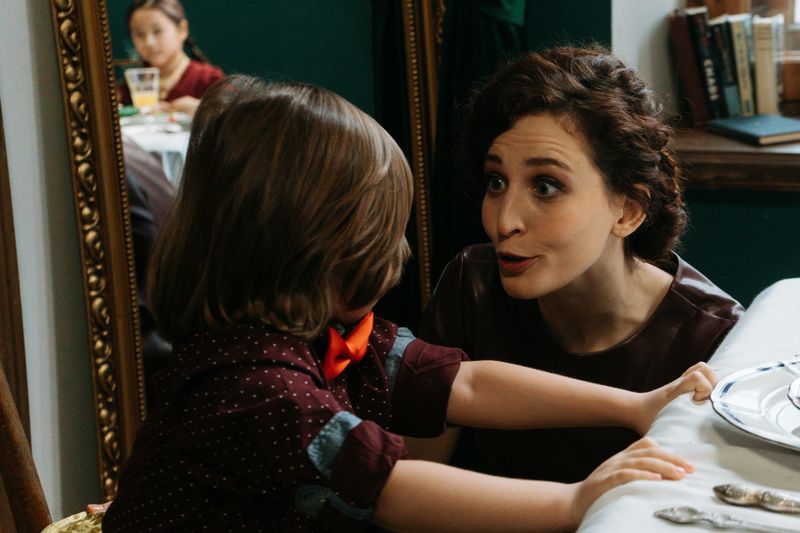Parenting isn’t for the faint of heart. Some days feel like navigating through a storm with no compass, where nothing goes right and your patience wears thinner than your favorite t-shirt. During these challenging moments, a few gentle reminders can serve as anchors, helping you stay grounded when everything else seems to be spinning out of control.
1. You’re doing better than you think
Parents often become their own harshest critics, magnifying mistakes while overlooking countless victories. The lunch you packed, the hug you gave, the story you read—these matter tremendously.
Children don’t need perfection; they need presence. Your little one won’t remember that you lost your cool once, but they’ll remember feeling safe in your arms.
Next time doubt creeps in, imagine watching another parent doing exactly what you do every day. You’d likely see dedication, not failure. Be as kind to yourself as you would be to that other parent.
2. This hard moment will pass
Remember the newborn phase that felt eternal? Yet somehow, it ended. The same applies to today’s struggles, whether it’s a tantrum in the grocery store or a teenager’s cold shoulder.
Family life moves in seasons, not permanent states. The colicky baby eventually sleeps through the night. The defiant toddler develops self-control. The moody preteen finds their balance.
When caught in a parenting storm, whisper to yourself: “This is temporary.” Take a mental snapshot of the difficult moment, knowing that someday you’ll look back and realize how fleeting it truly was.
3. Your needs matter too
Martyrdom doesn’t make you a better parent—it makes you a depleted one. Protecting your well-being isn’t selfish; it’s necessary maintenance for the most important job you’ll ever have.
When you consistently ignore your needs, resentment builds and patience dwindles. A parent running on empty has less to give, not more. That shower, coffee break, or quiet moment isn’t a luxury—it’s essential fuel.
Model self-care for your children by valuing yourself. They’re learning how to treat themselves by watching how you treat yourself. Your oxygen mask must go on first.
4. Connection trumps perfection
The Pinterest-perfect bedroom won’t matter to your child if they don’t feel connected to you. Children thrive not on flawless execution but on genuine presence and emotional availability.
Five minutes of undivided attention often outweighs hours of distracted companionship. Making eye contact during conversation, putting down your phone, or simply sitting together in comfortable silence builds bonds that discipline alone cannot.
Years from now, your child won’t recall if the house was spotless or if dinner was homemade. They’ll remember how you made them feel—seen, heard, and unconditionally loved despite imperfections on both sides.
5. It’s okay to ask for help
The myth of the self-sufficient parent has caused needless suffering for generations. Humans raised children in communities for thousands of years before the isolated nuclear family became standard.
Reaching out isn’t admitting defeat—it’s acknowledging reality. No parent can be everything to everyone all the time. Whether it’s calling a friend when you’re overwhelmed, hiring help when possible, or swapping childcare with another family, support systems matter.
The strongest parents aren’t those who never need assistance but those who know when and how to ask for it. Your vulnerability models healthy interdependence for your children.
6. Breathe before you react
The space between trigger and response holds your parenting power. That brief pause—even just three deep breaths—can be the difference between a reaction you’ll regret and a response that preserves dignity for everyone involved.
Your child’s behavior often stems from developmental limitations, not malicious intent. Their frontal lobe won’t fully develop until their mid-twenties, meaning impulse control and rational thinking remain works in progress.
When emotions run high, step back mentally if not physically. Count to ten, feel your feet on the floor, or simply name what you’re feeling. This tiny intervention interrupts the automatic stress response and reclaims your capacity for thoughtful parenting.
7. Small wins are big wins
Parenting progress rarely announces itself with fanfare. More often, it whispers through moments easily missed: the first time your child shares without prompting, attempts to tie their shoes, or manages disappointment without a meltdown.
Society celebrates academic achievements and athletic victories while overlooking character development milestones. Yet these quiet triumphs—increased empathy, emotional regulation, or problem-solving—ultimately shape who your child becomes.
Keep a mental (or actual) victory journal. Did your picky eater try one new food? Did your anxious child attempt something scary? Did you respond calmly instead of yelling? Celebrate these seemingly small moments—they’re actually enormous.
8. Your child loves you unconditionally
Children possess remarkable capacity for forgiveness. Long after you’ve beaten yourself up over losing your temper, they’ve moved on, their attachment to you unshaken.
Your child doesn’t measure your worth by your worst moments but by your consistent presence. Their love doesn’t require perfection—just repair when things go wrong. A sincere apology after a parenting misstep actually strengthens your relationship, modeling accountability and emotional honesty.
Look into your child’s eyes when they run to you after separation. That pure joy? It’s not because you’re flawless. It’s because you’re theirs and they’re yours, bound by a love that transcends daily struggles and embraces the whole, imperfect reality of family life.
9. Growth is messy
Every developmental leap brings temporary chaos before new stability emerges. Sleep regressions, increased clinginess, and behavioral backslides often signal that your child is working hard to master new skills—not that you’re doing something wrong.
Parents grow messily too. You’ll make mistakes, learn from them, then make different mistakes. Progress isn’t linear for anyone in the family.
The most beautiful gardens contain compost. Similarly, the challenges you face today fertilize tomorrow’s strengths, both yours and your child’s. Discomfort often precedes breakthrough. When family life feels particularly chaotic, whisper to yourself: “We’re not falling apart—we’re growing.”
10. Love is enough
Amid conflicting parenting advice and cultural pressures, remember this foundation: your deep, abiding love matters most. Children thrive not because their parents executed perfect strategies but because they felt genuinely cherished.
You won’t provide everything your child needs—nor should you. They’ll learn from many teachers throughout life. Your role isn’t to be their everything but to be their safe harbor, the place where they’re valued not for achievement but simply for existing.
When parenting feels overwhelming, strip it back to essentials. Did you love your child today? Did they feel it? Then you’ve succeeded at what matters most. Everything else is details.










